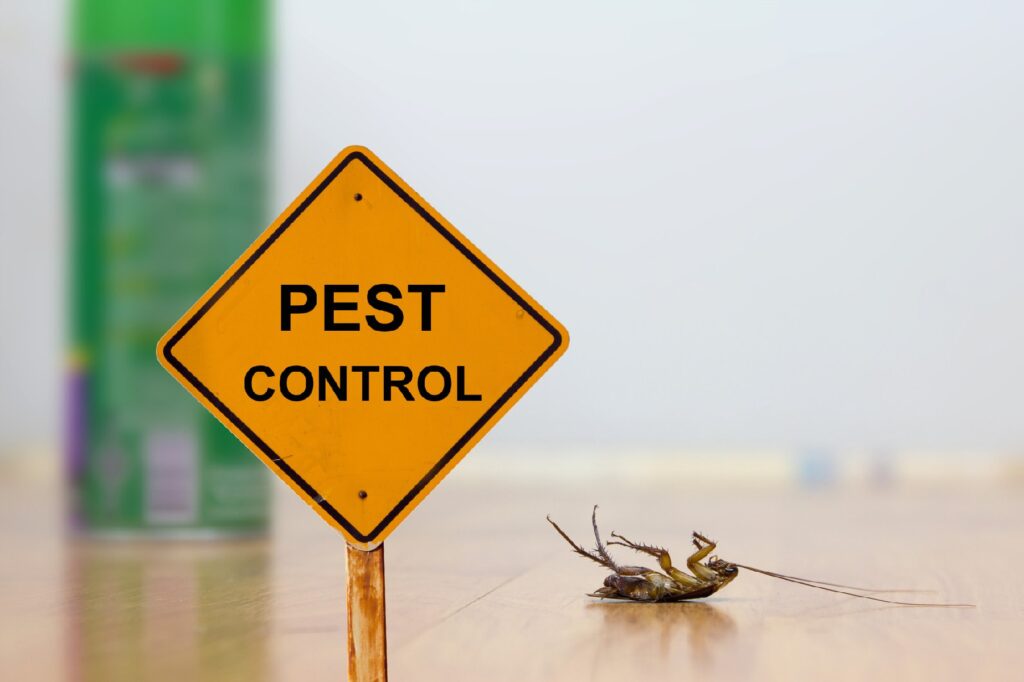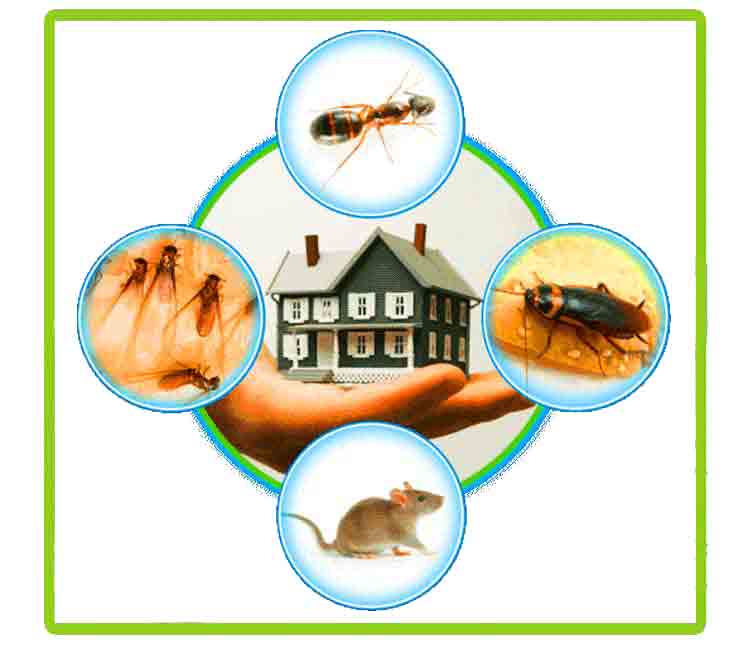Safe and Reliable Pest Control for Lasting Security
The relevance of risk-free and dependable parasite control can not be overemphasized, especially in an age where ecological issues are paramount. Efficient bug monitoring requires a complex strategy that balances ecological integrity with the demand for efficient insect suppression. By checking out green remedies and incorporated insect administration techniques, home owners can attain lasting defense against intrusive varieties while safeguarding beneficial ecological communities. The subtleties of these techniques may not be right away clear, triggering a closer exam of the practices that can lead to sustainable pest control end results. What steps can be taken to make certain both safety and efficacy in pest monitoring?
Comprehending Bug Control Approaches
Insect control incorporates a variety of approaches targeted at handling and eliminating undesirable insects and rats that can threaten both health and wellness and building. Comprehending these approaches is important for reliable insect monitoring.
The key classifications of parasite control techniques consist of mechanical, organic, and chemical methods. Mechanical approaches include physical obstacles and catches to avoid bug access and capture unwanted varieties. Making use of displays on home windows or using sticky catches can significantly decrease parasite populaces without introducing damaging substances - exterminator coquitlam.

Chemical pest control is frequently one of the most acknowledged method, utilizing chemicals to get rid of bugs. These chemicals can be efficient but must be used with care to prevent negative effects on non-target varieties and the setting.
Benefits of Eco-Friendly Solutions
Just how can green services change parasite control practices? The fostering of eco-friendly parasite control methods provides many advantages, substantially boosting the effectiveness and security of parasite management.

Another advantage is the positive effect on local biodiversity. Environmentally friendly solutions are designed to target certain bugs while protecting valuable pests and wild animals, advertising a well balanced ecological community. This strategy straightens with the growing consumer demand for lasting methods, boosting the track record of insect control providers.
Integrated Parasite Monitoring Methods
The application of environment-friendly services normally brings about the adoption of Integrated Pest Monitoring (IPM) approaches, which additionally improve pest control efficiency. IPM is an alternative approach that incorporates several tactics to manage parasite populations while minimizing ecological impact. This approach highlights using organic, cultural, mechanical, and chemical controls, ensuring a well balanced and sustainable approach of bug management.
One fundamental element of IPM is the complete analysis of pest activity and environmental conditions. By monitoring bug populations and determining their life cycles, experts can execute targeted treatments that disrupt the bug's habitat or lifecycle, minimizing dependence on chemical pesticides. Furthermore, social practices such as crop turning and environment manipulation can significantly reduce parasite establishment and reproduction.
An additional crucial part is using biological control representatives, such as beneficial bugs or microbes, which can normally suppress bug populaces. When chemical applications are necessary, IPM prioritizes the use of low-risk chemicals and uses them selectively, reducing direct exposure to non-target organisms and humans.
Integrating IPM approaches not just improves insect control effectiveness however additionally advertises a more secure ecosystem, aligning with the growing demand for lasting techniques in parasite monitoring.
Safe Practices for Homeowners
Understanding the significance of safe techniques in pest control can empower property owners to successfully handle bug problems while securing their health and the environment. Carrying out safe approaches and safety nets is important in lessening exposure to damaging chemicals.
Property owners ought to initially examine their environment for problems that bring in insects, such as standing water, clutter, and food waste. Consistently cleansing and securing entrance factors can prevent pests from attacking the home. Utilizing all-natural deterrents, such as essential oils or diatomaceous planet, can offer reliable options to chemical pesticides.
When chemical therapies are required, homeowners must go with items that are specifically identified as risk-free for domestic use. It is vital to adhere to application guidelines carefully to prevent overexposure. Additionally, utilizing targeted treatments in areas where bugs are recognized, instead of blanket splashing, can considerably reduce chemical use.
Last but not least, maintaining open communication with insect control specialists is essential. House owners need to inquire about the security of items browse around this site made use of and demand environmentally article source friendly alternatives whenever possible. By adopting these safe methods, house owners can develop a much healthier living environment while effectively taking care of bug issues.

Tips for Long-Term Protection
Establishing an insect management technique that emphasizes long-term protection can substantially enhance the effectiveness of the safe practices previously discussed. To attain this, homeowners ought to execute regular inspections of their residential or commercial property, concentrating on concealed locations such as attics, cellars, and crawl rooms. Early discovery of bug activity is vital in stopping infestations from taking hold.
Furthermore, keeping a clean setting is crucial. This includes appropriate food storage, promptly cleansing spills, and regularly getting rid of rubbish. These methods decrease attractants that attract pests right into the home. Sealing access points, such as splits around windows and doors, can successfully block possible insect accessibility.
Landscape design must additionally be thought about; maintaining plants trimmed and preserving a range between vegetation and the home reduces concealing spots for bugs. Making use of natural deterrents, such as necessary oils or diatomaceous earth, can even more inhibit infestations without turning to rough chemicals.
Lastly, working together with a specialist pest control service for regular analyses can supply an extra layer of security. These professionals can use customized recommendations and progressed therapies, guaranteeing that your home remains secured versus parasites in the long term.
Conclusion
To conclude, risk-free and reliable insect control needs a diverse technique that stresses green methods and integrated pest management. By executing all-natural deterrents, conducting regular assessments, and keeping correct cleanliness, property owners can significantly reduce parasite populaces while image source protecting advantageous insects and the environment. Cooperation with specialist bug control solutions improves the effectiveness of these approaches, making certain tailored solutions that offer long-term protection and comfort versus future problems.
Effective insect management calls for a diverse approach that stabilizes eco-friendly stability with the need for reliable bug suppression. The fostering of green bug control methods uses various benefits, significantly improving the effectiveness and safety and security of insect monitoring.The application of environmentally friendly options normally leads to the fostering of Integrated Insect Monitoring (IPM) methods, which further improve pest control effectiveness. exterminator coquitlam. By checking insect populations and determining their life cycles, specialists can apply targeted treatments that disrupt the insect's habitat or lifecycle, lowering reliance on chemical pesticides.In final thought, secure and reputable bug control requires a multifaceted strategy that emphasizes green techniques and incorporated parasite management